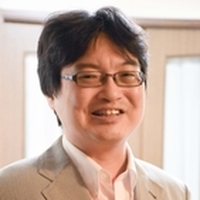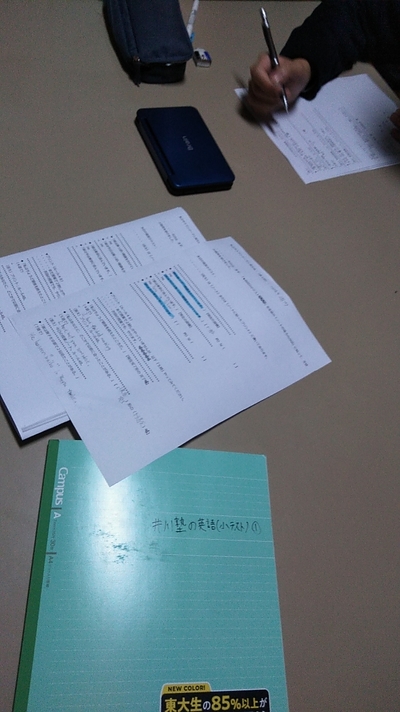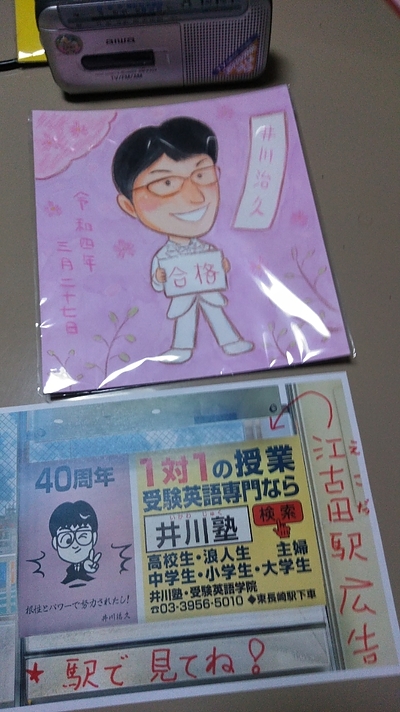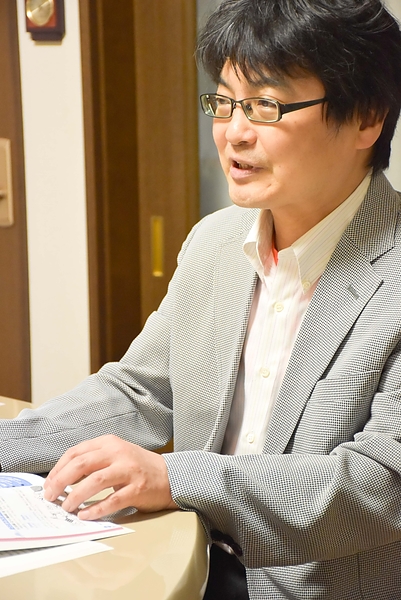「明治大学、農学部、受験対策」過去問、英語長文研究授業(復習小テストその6)
「明治大学の英語長文」の授業の復習、終わったかしら?
◆2019年12月7日の冬期講習・マンツーマン1対1演習授業:
生徒が買ってきた「明治大学の赤本」を、一緒に、読み、演習した。
生徒の疑問点、覚えられていない事項、メモ:
***************************************************
(1)
◆ meet ~
◆ see ~
・・・・・・違いは?
(2)
◆ have lunch
(3)
◆ demonstrate ~ ・・・・・・アクセントは?
●~を実証する
●~を実演する
●デモをする
*****************************************************
(4)
◆ He ( ) this point ( )( )
around us ( ) the hundreds of
( ) enjoying the sun.
● demonstrated ~
● by ~
● gesturing
● at ~
● another ● other ● others
******************************************************
(5)
●身振り
●意思表示 ●素振り(そぶり)
●見せかけ
(6)
◆「手話で」
(7)
◆「日向(ひなた)で」
◆「日陰で」
(8)
◆ busy
◆ heavy
・・・・・・何が、問われるの?
◆ jammed
(9)
◆ can't even
・・・・・・同意表現は?
(10)
◆ right now
・・・・・・2つの意味は?
・・・・・・同意の熟語は?
(11)
◆「諺にあるように」
・・・・・・2つの言い方は?
(12)
◆ but yet ・・・
(13)
◆ rude
・・・・・・名詞形は?
◆ impolite
・・・・・・反意語は?
◆ politeness
・・・・・・形容詞形は?
◆ courteous
・・・・・・名詞形は?
◆ civility
・・・・・・形容詞形は?
***************************************************
(14)
◆People ( ) cellphones in public
spaces are ( ). It's ( ) ( )
problems. ( ), we really have a
strong ( ) ( ) it's ( ).
● by ~ ● on ~ ●over ~
● rude ● rudeness
● create ~ ● creating ~
● all sorts of ~
● I mean,
● sense
● that ・・・
● everywhere
******************************************************
(15)
◆ give rise ( ) ~
(16)
◆ ( ) other words
◆ that ( ),
◆ that is ( )( ),
◆ namely
(17)
◆「その説明(理由)がどんなものであれ」
(18)
◆ a different explanation ( ) that
perception
(19)
◆ turn out ~ の使い方は?
・・・・・・同意表現は?
***********************************************
(20)
◆ ( ) turns out ( ) people
like ( ) in public ( ) ( )
they ( ) , and those who
( ) like going out are people
( ) their phones.
● It
● that
● socialize ● socializing
● much ● more ● most
● than ・・・
● used to ● used to be
● most
● use ● using
************************************************
(21)
◆「コーヒーのほうが好きだ」
◆「コーヒーが最も好きだ」
(22)
◆「彼女は彼と2か月付き合っている。」
= She's been going ( ) with him
for 2 months.
*****************************************************
(23)
◆ Our ( ) ( ) interact ( ) others
( ) public has ( ) since ( )
1970s.
● tendency
● to
● with ~
● in ~
● rise ● rose ● risen
● the
******************************************************
(24)
◆ He ( ) some of his ( )
at the ( ) of the museum.
● conducted ・・・・・・アクセントは?
● research
● step ● steps
(25)
◆ mention A ( ) B
*****************************************************
(26)
◆ She said that he ( ) be right
( ) these ( ) public spaces,
but ( ) technology may still
( ) ( ) effects ( ) and ( )
families.
● could ・・・・・・can より「控え目」
● about ~
● specific
● that ・・・
● have
● damage ● damaging ●damaged
● in the home
● on ~
******************************************************
(27)
◆ be wrong about ~ ・・・・・・同意表現は?
(28)
◆Get more exercise. Walking 40 minutes
( ) day ( ) do you ( ).
(29)
◆ She ( ) the ( ) of his samples.
● noted
● limitations
(30)
●見本
●標本
●実例
(31)
◆ ( ) the middle of ~
◆ ( ) the middle of the business
day
******************************************************
(32)
◆ ( ) might be quickly ( )
emails or ( ) , then ( )
( ) their day.
● businesspeople
● check ~ ● checking
● text messages
● get on ● getting on ・・・・・・同意表現は?
● with ~
(33)
◆ The ( ) generation might ( )
an ( ) ( ) ( ).
● younger
● be
● entire ● entirely
● differ ● different ● differently
● story
**********************************************************
(34)
◆ But he ( ) the effect ( )
something ( ).
● claim ● claims
● offset ~ ● was offset by ~
● difference ● different
(35)
◆The ( ) trend could be ( )
explained by an increase ( )
( ) number of ( ) in public
spaces.
● upward
● partly ・・・・・・同意表現は?
● in ~ ● to ~ ● by ~
● the ● a
● woman ● women
*************************************************************
(36)
◆ There ( ) a large increase
in the number of ( ) visitors
( ) 1979.
● is ● was ● has been
● woman ● women
● for~ ● since~ ● over ~
(36)
◆ ( ) place ( ) he found that
the number of women ( ) was
a ( ) shopping area. The ( )
( ) this ( ) could be interpreted
( ) a change ( ) ( ), he
( ).
● the only ~
● which ● where
● decreased ● had decreased
● major ・・・・・・発音は?
● decline
● in ~
● setting
● as ~
● in ~
● gender roles
● argue ● argues ● argument
**************************************************************
(37)
◆ Women seem to be ( )( )
( ) activities ( ) in public spaces
( )( ) by men.
● participate ● participating
● more
● in ~
● carry out ● carried out
● tradition ● traditional ● traditionally
● use ● using ● used
**************************************************************
(38)
◆ His research ( ) ( ) that
the story of public spaces in ( )
30 years has not been ( )
( ) ( ), but ( ).
● consistent ● consistently
● found ● findings
● the last
● alone ● aloneness
● causing ~ ● caused by ~
● digital devices ● devise ~
● gender equity
(39)
◆ Who would've thought that women
was not in public?
「女性が公共の場にいなかったと、誰が考えたであろうか。」
・・・・・・文法的・意味的に、何が、問われる?
************************************************************************
************************************************************************
(40)
◆ In Japan, one generation ago,
women were not in public ( )( )
they ( ) now.
● same ● the same
● way ● as
● are ● do
*************************************************************************
**************************************************************************
(41)
◆ impossibly difficult
(42)
◆ adequate
・・・・・・副詞形は?
・・・・・・名詞形は?
(43)
◆ urgently
(44)
◆ the way ・・・の使い方は? いくつ、やった?
・・・・・・同意表現は?
(45)
◆ ( ) the past 5 years
・・・・・・注意点は?
(46)
◆「~を享受する」
● I (e ) a healthy life.
(47)
◆ I play a wind instrument, (s )
a flute.
(48)
◆ This is as ( ) fun as that.
(49)
◆ go outside
(50)
◆「とりわけ」・・・・・・いくつやった?
(51)
◆ ( ) accordance ( ) the law
(52)
◆ what's more,
・・・・・・同意表現は?
(53)
◆ be inconsistent ( ) ~
・・・・・・「英語長文」は、カラープリントで、★「通読」しよう。
以上。
★質問があれば、次回に、教室で、いくらでも、どうぞ!!
●授業担当・・・・・・井川治久(塾長):
http://mbp-japan.com/tokyo/ikawa/
●井川塾・公式ホームページ・・・・・・35周年:
http://r.goope.jp/ikawa-juku559/
●井川塾長・公式ブログ:
http://ameblo.jp/wakarisugiru-ikawa/
*****












